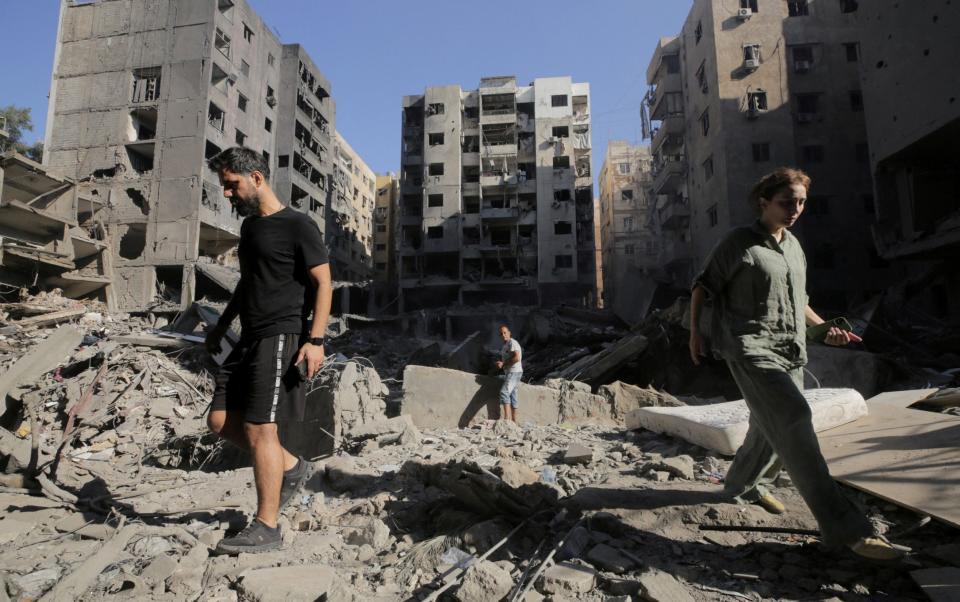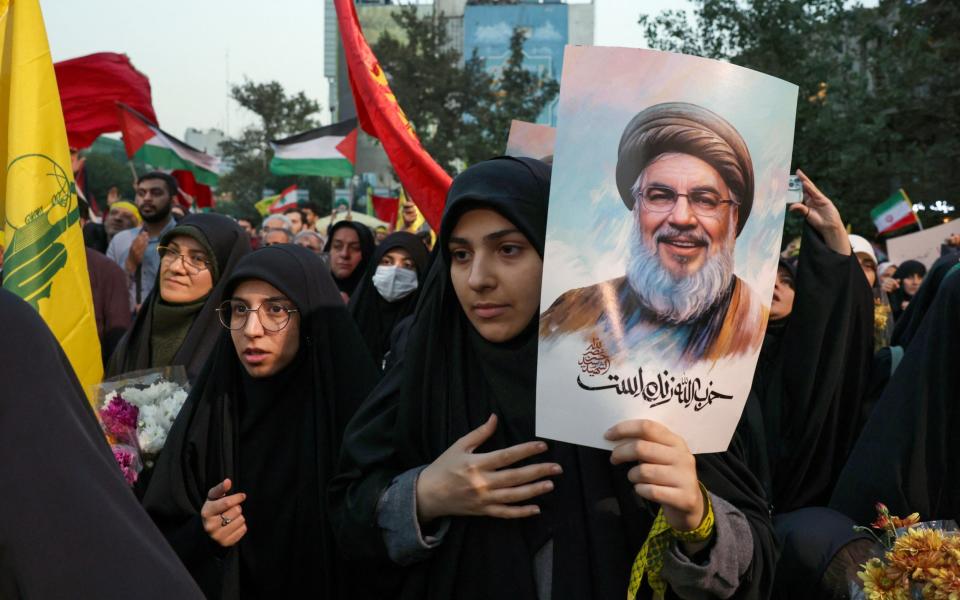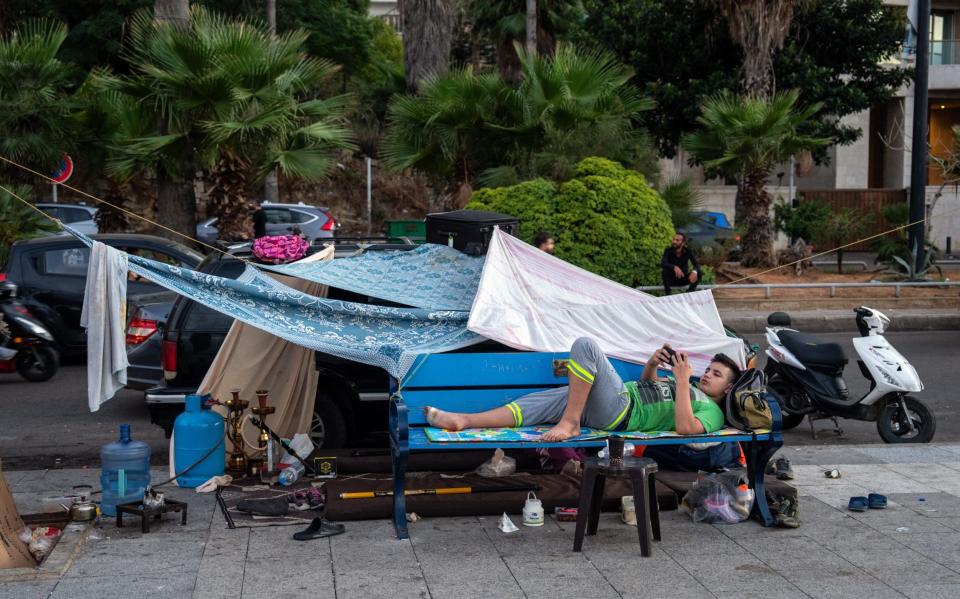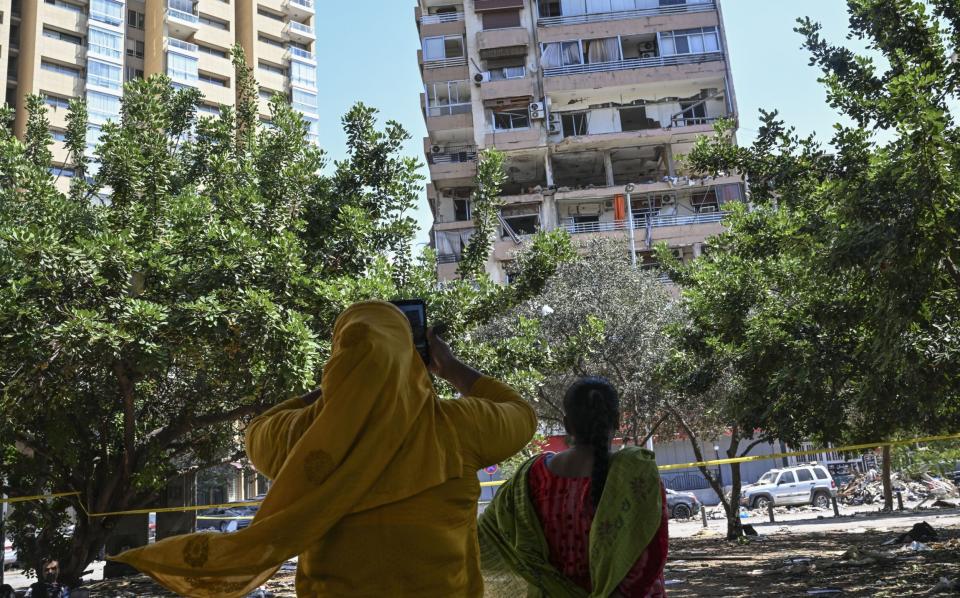A fortnight ago, there would have been no questioning the devotion felt by Lebanese Shia Muslims for Iran.
As for their brethren across the Middle East, Iran has long been their political and spiritual lodestar. “What the Vatican is for you Christians, Iran is for us Shia – only more so,” one is often told by Shias in Lebanon and elsewhere in the region.
Yet with Iran shying away from direct confrontation with Israel even as Hezbollah – its creation and most important proxy – lurches ever deeper into crisis, there are mounting signs that, in Lebanon at least, loyalty has begun to slip.
Beirut’s famous Corniche, a seaside promenade where fashionable residents of the Lebanese capital have long come to take the air, has for the past few days become a refuge for many Shia Muslims fleeing Israeli bombing raids on the city’s southern suburbs.
Among this community of the newly homeless stretching the length of the three-mile esplanade, it is not difficult to find discontent directed at Iran, with emotions ranging from philosophical disappointment to angry accusations of betrayal and outlandish conspiracy theories.
“If Iran had wanted to help, they would have helped a long time ago,” said Hana Mrad, a 43-year-old housewife who has been sleeping in her car with her two daughters since the air strikes that killed Hassan Nasrallah, Hezbollah’s leader, on Friday evening.
“Everyone has abandoned us and now Iran has, too.”



Other Shias, still struggling to digest the death of the man many knew simply as “Sayyid” or “Master”, hinted at deeper and darker betrayal.
Echoing comments that have been made on social media, one man went so far as to say that Iran had betrayed Nasrallah, revealing his whereabouts to Israel in exchange for an undertaking that Israeli forces would not strike Iran’s nuclear programme.
“Iran sacrificed Nasrallah, that is the only explanation,” the man said. “Iran organised the meeting where Nasrallah was killed and told Israel where he would be. How else would Israel know where he was and what other reason can there be for Iran refusing to fight with Hezbollah?”
Nasrallah’s death in a massive air strike on Hezbollah’s secret subterranean complex in southern Beirut came as he met senior commanders of the Iran-backed group.
Among the 20 people Israel says it killed at the meeting was Abbas Nilforoushan, the deputy commander of operations in Iran’s Islamic Revolutionary Guards Corps.
The suggestion that Iran and Israel would collude to kill Nasrallah is, of course, beyond far-fetched.




Ayatollah Khamenei, Iran’s supreme leader, is said to have been both shaken and grief-stricken by the death of a man he regarded not merely as a close friend but as arguably the greatest individual asset the Islamic regime had in its fight against Israel.
Yet the fact that such sentiments are being voiced at all shows that Iran is in danger of losing the affection of the Shia street, something that could in turn further diminish its ambitions for regional domination.
For four decades, Iran has nurtured, funded, armed and trained Hezbollah, which under Nasrallah’s leadership had emerged as by far the most potent of the proxy network of militias in Tehran’s “Axis of Resistance” against Israel.
But over the past fortnight, Hezbollah’s once formidable reputation has been battered by Israel’s sustained military assault on Lebanon that killed not just Nasrallah but also most of his top commanders.
With Hezbollah clearly struggling to mount an effective response despite firing hundreds of rockets across Lebanon’s border with Israel in the past two weeks, many Shia Lebanese had assumed that Iran would join the fray.
Instead, Tehran has hung back. Having long pursued a strategy of using proxies to attack Israel on its behalf, it has been reluctant to reverse the dynamic by fighting on behalf of its proxies.
Aware of Israel’s technological and military superiority, Iran also fears that an all-out war with the Jewish state may draw in the US and could quite possibly result in the downfall of the Islamic regime, which seized power in 1979.




Yet such caution carries costs. Iran’s reticence will look like weakness to many in the Middle East. Worse, as seems to be becoming clear, there will be a whiff of betrayal as well.
“Hezbollah sacrificed itself for Iran, but Iran will not sacrifice for Hezbollah,” said Haidar, another Shia who has fled his home in southern Beirut.
Not all Shia Muslims expressed such views, with some saying they assumed that Iran was working behind the scenes and that it still had a plan to defeat Israel.
Others flatly refused to believe Nasrallah was dead at all.
For many Shia Lebanese he was the man who gave their historically marginalised community a political voice, a sense of pride and a position of power within Lebanese society.
“We have not seen a body and they keep delaying the funeral,” one woman said. “Maybe this is all a plan to trick the Israelis and we will see him again soon.”
Source Agencies

